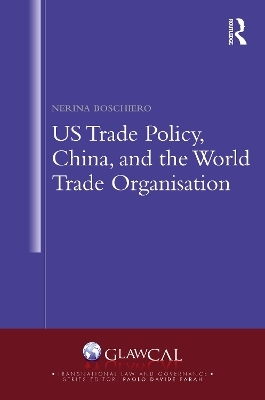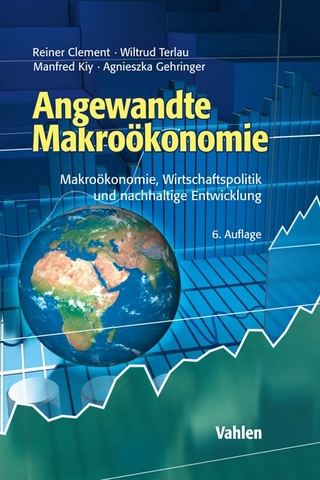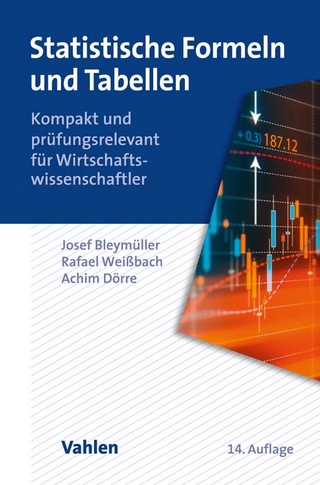
US Trade Policy, China and the World Trade Organisation
Routledge (Verlag)
978-1-032-20451-2 (ISBN)
The last few years have been "anni horribiles" for in International Economic Law in general and in particular for the World Trade Organization, since its inception in 1995 the guarantor of the world multilateral trade system. The increasing trade tensions, a high level of US security tariffs on steel and aluminium, the US boycott of the WTO Appellate Body, the US-China "trade war" and the reasons underlining it, only aggravated a disastrous world-wide economic situation at a time of tremendous global health and societal emergency, due to the persistent devastating spread of the COVID-19 pandemic. The book critically discusses the most salient past US administration’s unilateralist and protectionist practices. At the same time investigating the new Biden Administration’s trade approaches in order to assess whether the precedent trade trajectory is likely to continue, or there is hope of reviving the US commitment to the rule-based multilateral trading system. The book’s goal consists in distilling from current legal events the reasoning that might help the next generations in obtaining what the world needs most. These are a conscious and voluntary return to multilateralism, the search of new forms of effective global cooperation, better trade policies, a more equitable globalization, sound legal arguments, and solid economic reasons to combat rising nationalisms. If enacted, these elements hopefully would contribute to defeat new risks of political conflicts and long-lasting "trade wars". The book will be helpful to students and scholars in international and trade law, political science, and also professionals working in international and EU institutions.
Nerina Boschiero is Professor of International Law. She has been the Dean of Faculty of Law at the University of Milan (2014-2021), where she teaches International Law, Private International Law and International Sustainable Development Law. She activated a new international programme (LLM in Sustainable Development) entirely taught in English, and a new PHD (truly international) on Law, Ethics, and Economics on Sustainability
Chapter 1: The US Trade Policy Straddling Two Presidencies
Section 1: A Brief Summary of US Trade Policy under President Donald Trump
Introduction…………………………………………………………………………………….
1.1 The Extensive Recourse to (Unilateral) Trade Tariffs……………………………………..
1.2 The Trade War with China………………………………………………………………..
1.3 The Relationship with WTO and its Dispute Resolution System………………………….
1.4 The National Security’s Narrative…………………………………………………………
1.5 The Attitude Towards Preferential Trade Agreements……………………………………
Section 2: President Biden’s 2021 Trade Agenda: Will it Really Change Course?
Rescuing US Foreign Policy After Trump in Specific Areas, to Meet Global Challenges..
2.2 A Foreign Policy for the Middle Class: The Trump’s Protectionist Policies Are Here to Stay?...............................................................................................................................
The Biden’s Worker Centric Trade Policy……………………………………………
Addressing China’s ‘Coercive and Unfair Economic Trade Practices’ Through a Comprehensive Strategy…………………………………………………………………
Partnering with Friends and Allies to Repair Partnerships and Alliances: But… Mainly for Holding China to Account………………………………………………………….
Tariffs: Any Possibility of Their De-escalation and/or Removal?.................................
Biden and the WTO……………………………………………………………………
The so-called "US National Security Concerns" …………………………………
Chapter 2: The Recent Shift in the American Trade Policy Agenda Towards Unilateralism
2.1 The US Unilateral Tariffs on Steel and Aluminium under Section 232 of the 1962 Trade Expansion Act and their Impact on Multilateral Trade Rules………………………………
2. 2 The Tit for Tat Retaliatory Actions Taken by the WTO Members Affected by the US’s Unilateral Tariffs. The Problem of their Characterization as "Safeguard Measures in Disguise"………………………………………………………………………………………………..
2.3 The Section 301 of the 1974 Trade Act and the Sanctions against China………………..
2.4 The Complex Legal Relationship between the WTO Dispute Settlement System and Section 301 Investigations Against China. The US- China Litigations……………………….
2.5 The 2019 "Phase One" US-China Agreement. Any Possibility for a "Phase Two"?..........
Chapter 3: The Economic and Legal Reasons Underlying the US-China Rivalry and the Consequences for the WTO System
3.1 The (Unconvincing) US’ Trade Economic Reasons……………………………………
3.2 The Reasons Associated with the Chinese Economic Growth……………………………
3.3 The Problem of China’s Special and Differential Treatment as a "Developing Country"…………………………………………………………………………………….
3.4 The US Protectionist Strategy in the Antidumping Cases Against China in the Light of the Complex Problem of its "Market Economy" Status………………………………………
3.5 The Trade-Distorting Role of Subsidies Conferred to Chinese State-Owned Enterprises (SOEs)………………………………………………………………………………………
3.6 The Ongoing Controversy about the Legal Concept of "Public Body" under the SCM Agreement……………………………………………………………………………………..
3.7 The Innovative Provisions Contained in the Most Recent Regional and Preferential Trade Agreements: Any Best Way to Deal with China?.......................................................
3.8 The Missing Point: The New (Necessary) Role of Governmental Intervention and Involvement in the Current Health and Economic Crisis……………………………………..
Chapter 4: The Overall Impact on the New US Trade Agenda on the WTO Dispute Settlement System
Introduction…………………………………………………………………………………….
4.1 A Brief Analysis of the Major Reasons of US’s Discontent about the AB………………,
4.2 International Bodies’ Interpretation of WTO Law versus National Sovereignty…………
4.3 The Alleged AB "Judicial Activism" in the Interpretation of the WTO Rules…………..
4.4 The Problem of AB Reports as "Binding Precedents"…………………………………….
4.5 The Problem of Gap-filling Activities by the WTO Dispute Settlement System, Especially in Sensitive Area of US’s Concerns……………………………………………….
4.6 How to Better Reconcile the Need of a Compulsory, Impartial and Enforceable Dispute Settlement Mechanism with the US Request of Higher Degree of Control and Political Checks on Adjudicative Outcomes…………………………
4.7 The European’s Reaction to the Impasse of the WTO Settlement Mechanism: the EU’s Interim Appeals System (MPIA) …………………………………..
4.8 The New EU Enforcement Regulation and Its Compliance with Public International Law
Chapter 5: The US Section 232 Actions as National Security Measures. a New Era for WTO Security Exceptions ?
5.1 The US’s Counterclaim in the Light of the Negotiating History and Historical Interpretation of the Security Exception under Article XXI GATT…………
5.2 The "Self-judging" Nature of Security Exception in Previous Adjudications of Other International Law Fora (International Court of Justice and International Investment Arbitrations) ………………………………………………………………………………
5.3 The Very First Interpretation of Article XXI (b) (iii) by the AB in its Russia Panel Report. The Main Findings…………………………………………………………………..
5.4 Relevant Implications for the Ongoing Disputes Relating to Sections 232 Actions…...
5-5 The Security Exception of Article 73 TRIPS as Interpreted by the Panel Report in the Qatar’s WTO Dispute with Saudi Arabia…………………………………………………
5.6 The Recent Invocation by Ukraine of the Security Exceptions of the WTO to Justify its Imposition to the Russian Federation of a "Complete Economic Embargo" and the Measures Adopted by Third States ……………………………………………………………………
5.7 The Need of a Re-conceptualization of the WTO Security Exceptions in the Light of their Evolving Nature:
a) National security as "economic self-sufficiency and competitiveness"…………….
b) Other threats to the national security……………………………………………….
C Concluding Remarks: Economic Nationalisms versus the Multilateral Trading System
| Erscheinungsdatum | 11.07.2023 |
|---|---|
| Reihe/Serie | Transnational Law and Governance |
| Verlagsort | London |
| Sprache | englisch |
| Maße | 156 x 234 mm |
| Gewicht | 694 g |
| Themenwelt | Recht / Steuern ► Allgemeines / Lexika |
| Recht / Steuern ► EU / Internationales Recht | |
| Sozialwissenschaften ► Politik / Verwaltung | |
| Wirtschaft ► Volkswirtschaftslehre ► Makroökonomie | |
| Wirtschaft ► Volkswirtschaftslehre ► Wirtschaftspolitik | |
| ISBN-10 | 1-032-20451-6 / 1032204516 |
| ISBN-13 | 978-1-032-20451-2 / 9781032204512 |
| Zustand | Neuware |
| Informationen gemäß Produktsicherheitsverordnung (GPSR) | |
| Haben Sie eine Frage zum Produkt? |
aus dem Bereich


